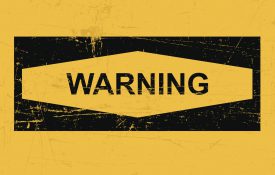-

Political Affiliation Can Predict How People Will React to False Information About Threats
Social conservatives are more likely to believe untrue warnings about possible threats than are liberals, two studies show.
-

We Dislike Hypocrites Because They Deceive Us
We’re averse to hypocrites because their disavowal of bad behavior sends a false signal, misleading us into thinking they’re virtuous when they’re not, findings from a psychological study show.
-
New Research From Clinical Psychological Science
Read about the latest research published in Clinical Psychological Science: Do Measures of Posttrauma Factors Better Explain PTSD Severity Than Pretrauma Factors? An Empirical Reply to Ogle et al. Peter G. van der Velden and Leontien M. van der Knaap In a 2016 study, Ogle, Rubin, and Siegler examined how pre- and posttrauma factors contribute to posttraumatic stress disorder (PTSD) symptomatology. They concluded that posttrauma factors accounted for severity of PTSD symptoms better than pretrauma factors. van der Velden and van der Knaap argue that content overlap between the predictor and outcome variables was not properly accounted for in this study.
-

When a “Golden Opportunity” to Bribe Arises, It’s Hard to Pass Up
Studies led by researchers at VU Amsterdam suggest that the path to corrupt behavior may sometimes be a steep cliff instead of a slippery slope, contrary to popular belief.
-

Teens Unlikely to Be Harmed by Moderate Digital Screen Use
New findings from over 120,000 adolescents in the UK indicate that the relationship between screen time and well-being is weak at best, even at high levels of digital engagement.
-

Children Gain More Weight When Parents See Them as ‘Overweight’
Children whose parents considered them to be ‘overweight’ gained more weight over the following decade compared with those whose parents thought they were ‘normal weight,’ according to data from two nationally representative studies.

